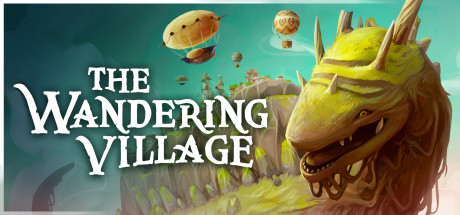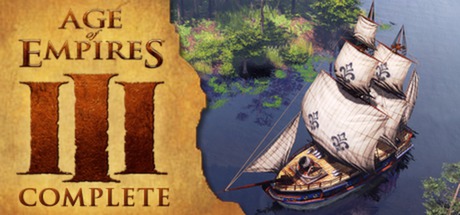
230
Players in Game
5 457 😀
529 😒
88,16%
Rating
$29.99
The Wandering Village Reviews
The Wandering Village is a city-building simulation game on the back of a giant, wandering creature. Build your settlement and form a symbiotic relationship with the colossus. Will you survive together in this hostile, yet beautiful post-apocalyptic world, contaminated by poisonous plants?
| App ID | 1121640 |
| App Type | GAME |
| Developers | Stray Fawn Studio |
| Publishers | WhisperGames, Stray Fawn Publishing |
| Categories | Single-player, Steam Achievements, Steam Cloud, Full controller support, Steam Trading Cards |
| Genres | Strategy, Simulation, Early Access |
| Release Date | 14 Sep, 2022 |
| Platforms | Windows, Mac, Linux |
| Supported Languages | Portuguese - Brazil, French, German, Spanish - Spain, Simplified Chinese, Traditional Chinese, Japanese, Arabic, Russian, English, Korean, Turkish, Polish, Italian |

5 986 Total Reviews
5 457 Positive Reviews
529 Negative Reviews
Very Positive Score
The Wandering Village has garnered a total of 5 986 reviews, with 5 457 positive reviews and 529 negative reviews, resulting in a ‘Very Positive’ overall score.
Reviews Chart
Chart above illustrates the trend of feedback for The Wandering Village over time, showcasing the dynamic changes in player opinions as new updates and features have been introduced. This visual representation helps to understand the game's reception and how it has evolved.
Recent Steam Reviews
This section displays the 10 most recent Steam reviews for the game, showcasing a mix of player experiences and sentiments. Each review summary includes the total playtime along with the number of thumbs-up and thumbs-down reactions, clearly indicating the community's feedback
Playtime:
3524 minutes
I got this on early access a few years ago because I thought the premise was unique and charming, and its been great to see that premise fully realised in an excellent city builder on its full release. The balance of keeping your town growing and thriving in a limited area while also taking care of your giant companion's needs as you voyage across a hostile landscape has kept me hooked through multiple playthroughs. The trial mode offering a lot of custom challenges for repeat playthroughs once you clear the story makes this an easy game to come back too for me. The music and visuals also fit the world perfectly, and I found the story while straightforward to be excellent and it even managed to have some great character writing even though there was not a ton of dialog. This game clearly takes a lot of inspiration from Nausicaä of the Valley of the Wind in its style and message which I really enjoyed.
Overall I would highly recommend The Wandering Village if you have even a passing interest in city builders. Im sure I'll be coming back to this game for years to come whenever I want a bit of easygoing fun.
👍 : 2 |
😃 : 0
Positive
Playtime:
1600 minutes
I enjoy the game, its nothing ground breaking but its fun and cute!
Cant recommend it though because it is still buggy (scavenger huts get stuck prior to completion and can't be cancelled or removed), and needs some QoL and difficulty balancing improvements. If you are on the fence, I'd recommend waiting until v1.1 drops.
👍 : 3 |
😃 : 0
Negative
Playtime:
24187 minutes
I've been playing this for a long while in early access and am thrilled to play the full story! The gameplay is great, the devs have definitely put a lot of thought into the balance with each feature they added. I look forward to many more hours with Onbu.
👍 : 2 |
😃 : 0
Positive
Playtime:
851 minutes
Hello! I hope everyone is doing well.
So far, The Wandering Village has been an absolute blast. I’ve really enjoyed the story, the game mechanics, and the progressive difficulty — it strikes a great balance between peaceful moments and stressful decisions based on in-game systems.
However, I’ve hit a major frustration point.
At one stage, the game presents you with a mission to feed citizens to Onbu. If you choose to do so, you unknowingly trigger the development of a cult, which later forces you to sacrifice a villager every 2–3 days. There is no clear warning that this will be a long-term consequence, and once it starts, there’s no obvious way to stop it.
I understand the design intention and the challenge it introduces — but it becomes extremely frustrating and repetitive. After investing 14.2 hours into the game, I feel like my enjoyment has been completely derailed by constant, unavoidable sacrifices. It’s excessive, immersion-breaking, and ultimately discouraging.
Please consider adding:
A warning or clearer explanation about the long-term impact of feeding Onbu citizens.
A way to reverse or manage the cult system once triggered.
More player agency to opt out of extreme mechanics like this.
Otherwise, it’s a fantastic game with huge potential — but right now, this mechanic genuinely ruins the experience for me.
👍 : 16 |
😃 : 3
Negative
Playtime:
2083 minutes
I fell in love very quickly with The Wandering Village, but I waited to write a review until I was sure that the gameplay remained interesting even after the initial novelty wore off.
It should be noted that I am not generally a fan of city-builders as I find that the gameplay becomes tedious, complicated, or done without a real end objective in mind. I gave The Wandering Village a try because I loved the look and premise, and because I greatly enjoy survival games.
Indeed, this game leans into the survival elements in a way that keep the city-building engaging and resource management feeling impactful. The city-building itself is not so complex as to be overwhelming, but the cost for research and construction can be punishing if you are not careful in your planning. Management of the village largely comes down to laying down a reasonably efficient layout of buildings, carefully assigning workers to tasks based on need, as well as determining what resources are required to survive the oncoming challenges. The different biomes you encounter as the (unreasonably adorable) Onbu moves drastically change what resources you can obtain and need to survive. In this way, there is always a sense of a careful balancing act whilst on a timer in having to maintain both the needs of the village as well as Onbu. At first, I was worried that the game would become dull or tedious as the village grew, and while there are certainly still some warts regarding efficiently managing workers and resources, I never felt like I had to put the game on fast-forward to keep things engaging. This was a strong mark in the game's favor over similar city-builders I've tried.
My first playthrough focused on getting through the new story mode. The story was pleasantly solid in both building up the history of the world while also being integrated almost seamlessly into the regular gameplay. The objectives given throughout the story act as ways to introduce the player into new elements of the game, as well as encouraging you to make potentially difficult choices.
The most obvious and distinguishing system in the game is your maintenance of your Onbu's health, exhaustion, hunger, and trust. Onbu's trust in you serves as a sort of currency that you can choose to sacrifice for resource advantages. However, losing too much trust can be risky since angering Onbu can result in very dangerous situations, (as well as the guilt that comes with exploiting a cute and friendly creature). I never felt too pressured to hurt Onbu in my first playthrough, as playing on Normal difficulty was not too threatening even with suboptimal play. Now, as I am beginning to play on Hard with the various difficulty modifiers, I can see how these choices can become more important, and the trade-offs become more necessary. On Normal and Easy difficulties you can rest assured knowing that treating Onbu very well is not punished.
Overall, I would strongly recommend the game to people who find the style appealing; it is a remarkably charming game to look at and to listen to. Furthermore, it is a great game to relax with on a lower difficulty. And for those like me who want more of a survival challenge, where your ability to plan and min-max is tested, the difficulty modifiers seem to offer that in spades while still maintaining a level of relaxing fun.
The Wandering Village isn't a perfect game, but it has a lot to offer a wide variety of players. As for myself, it has succeeded in charming me far beyond what many other games have managed to do, and for that alone I would recommend it.
👍 : 5 |
😃 : 0
Positive
Playtime:
1582 minutes
I'm having a blast with this game! It has a lot of charm, but don't sleep on the systems. Being on the back of a giant dino roaming through different biomes is really cool and adds a plausible way for challenges. I'm a huge fan of games like RimWorld, Banished, Farthest Frontier, Enzone 1 & 2, Timberborn, Manorlords, etc. and this really gives me a different vibe. I LOVE IT! Great job devs.
👍 : 3 |
😃 : 0
Positive
Playtime:
1712 minutes
Nifty game. Resource management is a little off, but not too bad.
Overall, if you liked Nausicaä of the Valley of the Wind, or almost any other Miyazaki film, you'll love the style and the feel.
👍 : 5 |
😃 : 0
Positive
Playtime:
1393 minutes
Underlying gameplay is fun, but 1.0 is a constant exercise in micromanagement and the UI is not helpful here.
You can't queue anything or set resource limits so you'll spend most of your time clicking across your Onbu tweaking worker allocation.
All growing facilities(farms, shrooms, etc) grow a lot more crop than workers there can harvest. Which means either finding how much each facility can make, then making more of them or habitually manually harvesting with idle workers. Neither are intuitive.
You need to shift workers around constantly but there is no overall UI screen to help you. You must rely on the flags next to each building then manually click on each one. Once the village becomes large enough it's easy to lose track of a worker or two and find out they were doing something you didn't need.
There's potential here and I am an early access buyer it's just the user experience needs a lot of work.
👍 : 9 |
😃 : 0
Negative
Playtime:
663 minutes
i think im at a point where i i will play a bit longer just see how the story ends but once you establish yourself in the game and understand the fundamentals it begins to feel like there is little to no content.
The content that does exist still feels incomplete as the ui feels hard to interact with at times, it is hard to place multiple of the same building consecutively, you must return to the build menu and select the building again, making adding bushes and other elements for villager happiness a chore at best and downright hellish at times. you cant rotate buildings, making your village layout feel very limited. overall it feels like a lot of key elements in city builders are missing. including diversity in upgrades and research as well as a fun late-game with reason to continue journeying on the legendary Onbu.
The game is very nice aesthetically and i hope to see some free big updates before paid dlc, as it would be nice to see some cool new varieties in how you specialise your Onbu similarly to how rim world has the different dlcs for different "paths".
Once they work on the quality of life and adding some more meat to the base game i can see this game truly being worth the time to check out. As of now I still think it deserves the Early Access title.
👍 : 21 |
😃 : 1
Negative
Playtime:
856 minutes
It's a cute game, but the 1.0 launch offers insufficient variation. Once you figure it out, you're pretty much done. Sure, you can add some difficulty modifiers, but more difficulty does not mean a more diverse game. I enjoyed my first play through, but everything after failed to captivate or entertain.
Two more things which I found suboptimal: research and the constant shifting of workers. Depending on your needs and the current biome, you need to switch workers around. This gets somewhat tedious. Additionally, you're unable to queue research, so you have to go into the research menu for every single upgrade. There's the basis for a good game underneath, but it's just not there yet.
👍 : 69 |
😃 : 2
Negative







